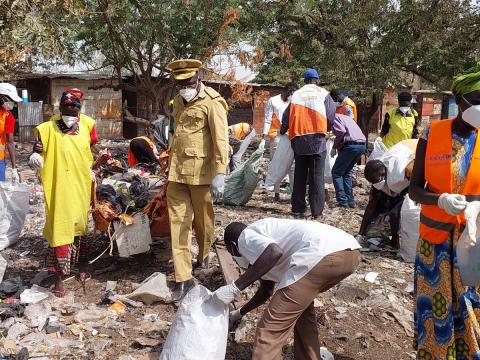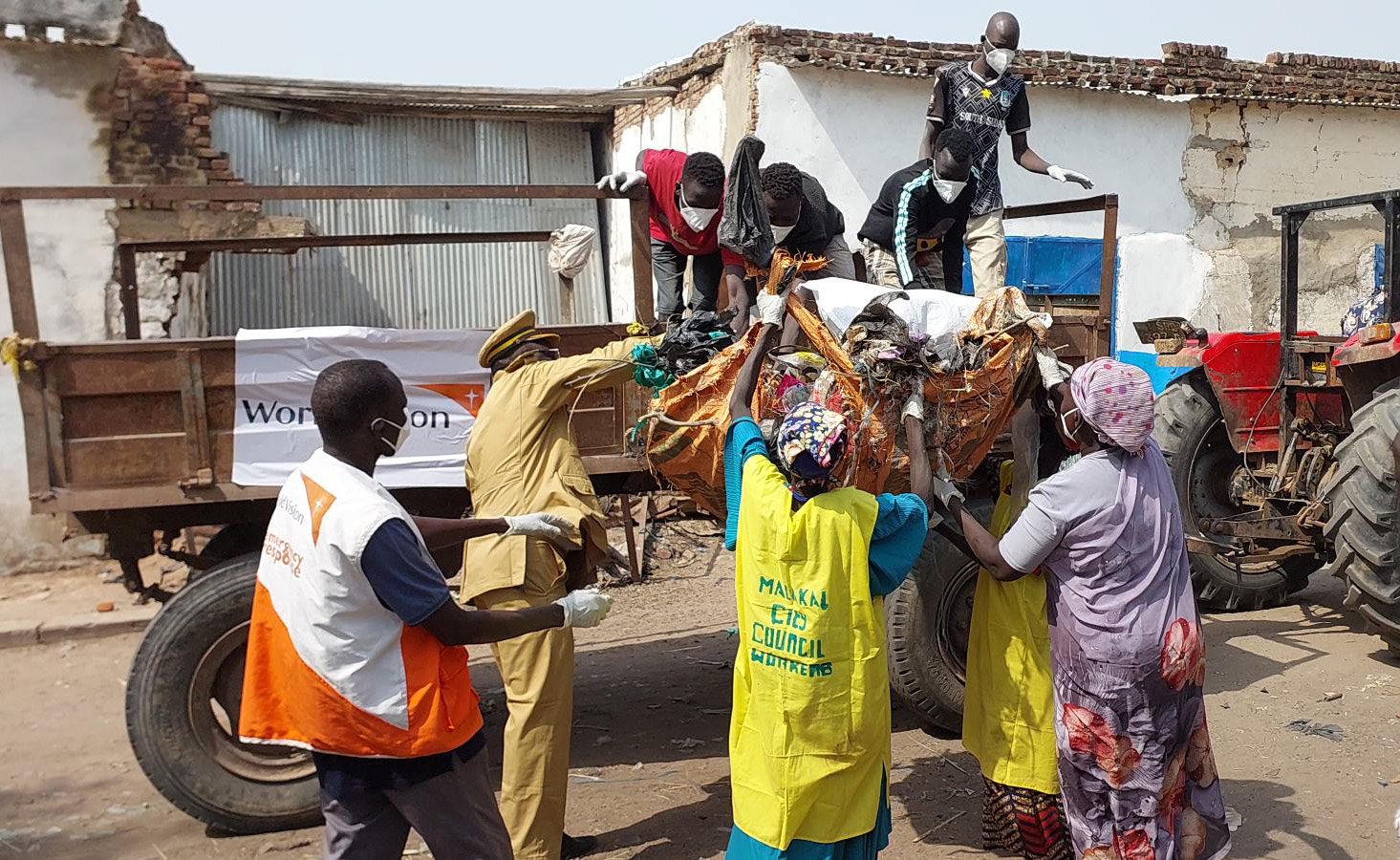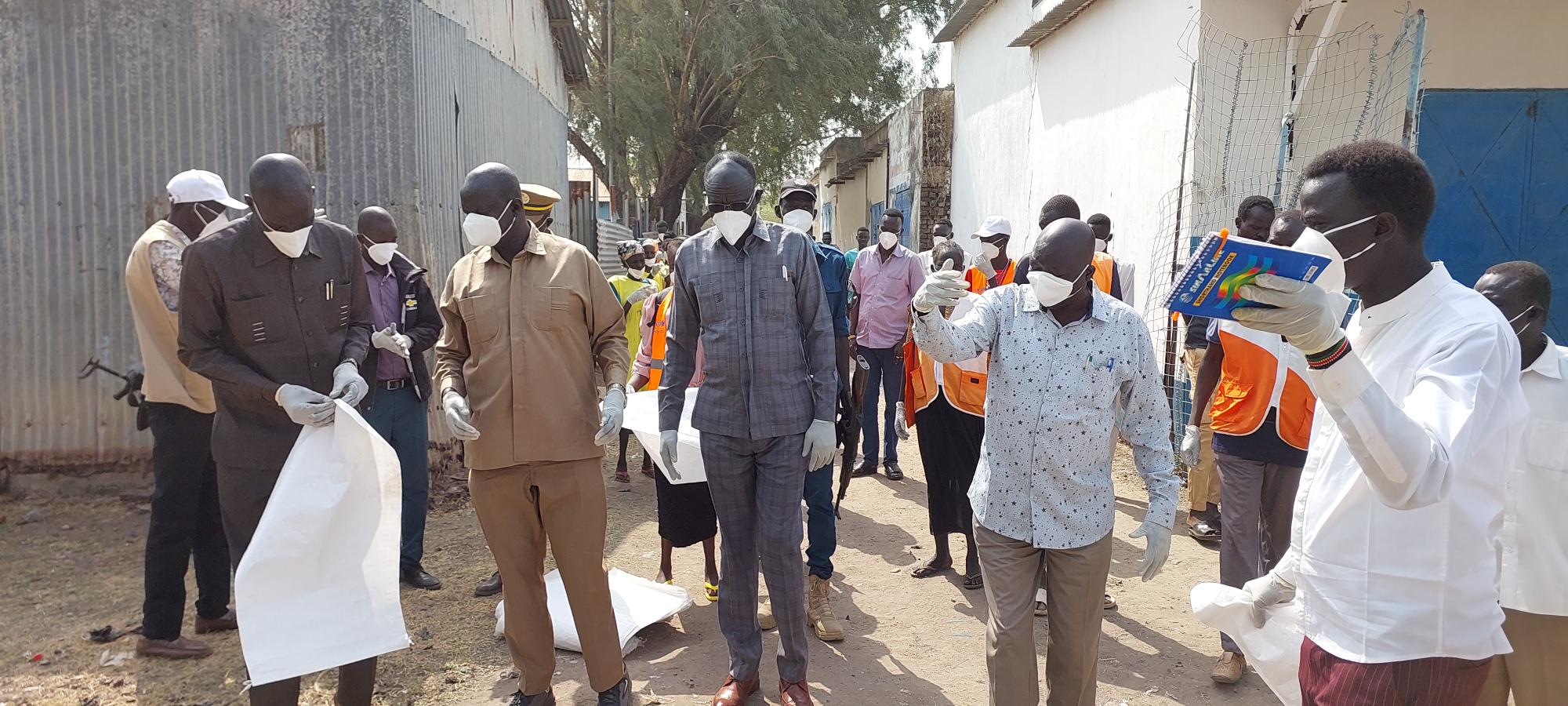Sanitation and hygiene -- a matter of urgency in Malakal, Upper Nile

The population of Malakal in Upper Nile has been increasing. This situation has caused a pressing issue for both the government and humanitarian organisations, such as World Vision, as sanitation and hygiene have become a major concern. Despite the challenges, there are promising efforts to improve the situation. Patrick Mugalula, World Vision South Sudan zonal manager for Upper Nile at, is optimistic and writes about the progress being made.
Earlier this month, we, World Vision South Sudan zonal office staff in Upper Nile partnered with the the Malakal City Mayor's office to launch a city-wide hygiene promotion campaign. The campaign aims to raise awareness about good hygiene practices, disease prevention, and improving behavior in Malakal City. The campaign launch brought together World Vision volunteers, city council officials, workers, and women's groups from nearby markets.
Malakal City has a population of over 50,000 people, including 16,000 internally displaced persons (IDPs) who were displaced from other countries due to natural disasters and conflicts. Additionally, over 5,000 people are South Sudanese nationals fleeing from the ongoing conflict in Sudan, while the remaining 30,000 people are members of the host community. Hence, the surging population has put a lot of pressure on existing services, such as hospitals, water supply, and sanitation facilities, and stretched available government and humanitarian resources, especially with severely reduced humanitarian response funding.

Nyamum Thon Lual (48), one of the women selling vegetables at the market, was delighted to see and participate in the cleanup activity that we held during the launch. She said the market had become a dumping site, and it had been challenging to confront and stop people from carelessly dumping rubbish around the area. She was happy that we’re helping lead the cleaning-up campaign, but she appealed to the government to do more to ensure proper dumping sites were designated and fenced off. "Otherwise, this would be a wasted effort as people would continue dumping the following day,” she said.

It’s critical for the government, communities, and humanitarian partners to address the sanitation and hygiene concern of the city as dseases such as cholera are likely to spread faster, putting greater risks to children’s health. If the government and humanitarian partners do not make extra effort to support and respond to people's emerging needs, diseases such as cholera will easily and quickly spread. There is already a cholera scare due to the high population of returnees and refugees arriving in South Sudan amidst the limited and overstretched humanitarian resources. However, the government, WHO, and health humanitarian partners, including World Vision, are making every effort to put strong cholera contingency measures in place.